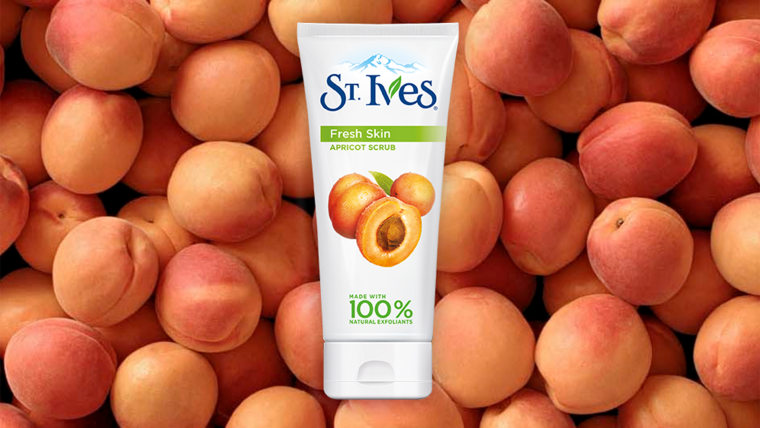People looking for softer skin sometimes turn to St. Ives Apricot Scrub to exfoliate. But a class action lawsuit recently filed claims that the popular scrub can damage skin and “is unfit to be sold or used as a facial scrub.”
Kaylee Browning and Sarah Basile filed the lawsuit in the U.S. District Court in central California against Unilever, the parent company of St. Ives. According to Top Class Actions, the plaintiffs claim the crushed walnut shells in the scrub can damage skin, and they balk at the use of “dermatologist tested” on the label. They allege that no dermatologist would recommend the scrub and believe the company should disclose that the scrub can cause microscopic tearing of the skin. They’re seeking $5 million.
A Unilever spokesperson provided TODAY with a statement:
“As a general practice, we do not comment on pending litigation. We can say that for over 30 years, consumers have loved and trusted the St. Ives brand to refresh and revitalize their skin. We are proud to be America’s top facial scrub brand and stand by our dermatologist-tested formula.”

RELATED: EOS lip balm caused blisters, rash, lawsuit claims
The scrub split
Scrubs divide dermatologists. The lawsuit cites a New York magazine article where dermatologists debate scrubs, with one, Dr. Dennis Gross, claiming "it’s like using sandpaper on your face." However, others say it promotes healthy cell growth.
"When scrubs are used appropriately, they can remove keratin plugs associated with acne and boost collagen production, helping skin to look healthy and smooth," said Dr. Apple Bodemer, assistant professor of dermatology at the University of Wisconsin School of Medicine and Public Health.
But Bodemer does not recommend people use them.
“I generally don’t feel that anyone needs an exfoliant,” said Bodemer. “I think that gentle cleansing by using your fingers … helps the skin flake off.”
RELATED: Is there enough SPF in your sunscreen? Maybe not, lawsuit claims
Nut or sugar scrubs can cause tiny tears in the skin. While the tearing can’t be seen, these miniscule openings can make it easier for bacteria or other irritants to get into the skin and cause infections.
“You are disrupting the barrier,” said Dr. Adam Friedman, associate professor of dermatology at George Washington School of Medicine and Health Sciences. “Your skin is dry and cracked but you are breaking your skin down further with these scrubs.”
It's important to note that scrubs don't cause wrinkles. Breakdowns deeper in the skin's layers contribute to wrinkles.
Kicking the scrub habit
Bodemer and Friedman say that if people feel like they need to exfoliate, they should use a chemical exfoliant, which is safer.
But, by properly caring for skin, people can avoid the build-up of dry skin that makes them turn to exfoliants.
Use a mild or neutral soap and lukewarm water to wash the face no more than twice a day. Then apply a moisturizer on damp skin. This prevents it from drying out.
RELATED: 7 ways to soothe and protect winter skin, from milk baths to DIY scrubs
"If you simply hydrate the skin, you give it buoyancy," he said.
Even though Bodemer doesn't recommend exfoliation, she advises people who do like scrubs to only use them once every few weeks. The skin needs time to heal. She also urges them not to rub vigorously. Simply put it on the face and gently wipe it off.
“Do not really go at it and rub the skin with the scrub," she said. "That creates more damage.”